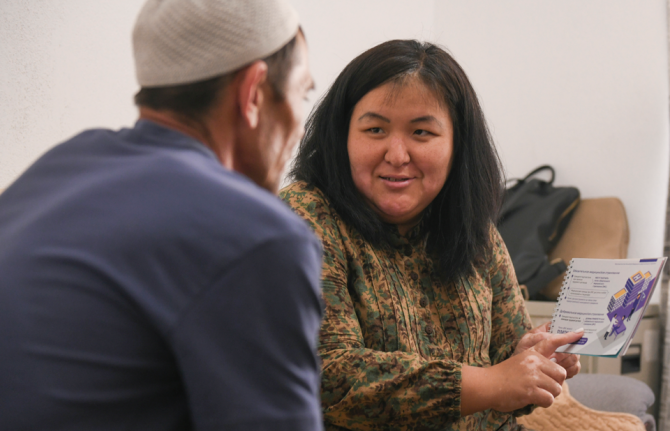

Update
Women and girls face extraordinary burdens in humanitarian crises across the world, says UNFPA
07 December 2015
07 December 2015 07 December 2015The many crises, wars and natural disasters around the globe are leaving women and adolescent girls facing a significantly heightened risk of unwanted pregnancy, maternal death, gender-based violence and HIV, says a new report from the United Nations Population Fund (UNFPA).
The State of world population 2015—Shelter from the storm: a transformative agenda for women and girls in a crisis-prone world is a “call to action” to meet the needs and ensure the rights of tens of millions of women and girls caught up in the turmoil of conflict and disaster. More than 100 million people are now in need of humanitarian assistance, more than at any time since the Second World War.
Although remarkable progress has been made in providing women and girls with humanitarian services in the past 10 years, not enough is yet being done to address their particular vulnerabilities, the report argues. It highlights how, for example, their risk of HIV infection is increased and how this heightened risk should inform programmes and assistance. Women and girls experiencing humanitarian crises often face sexual and gender-based violence, including rape, which is a risk factor for HIV transmission. Other factors experienced include trafficking, transactional sex and sex work.
Access to HIV prevention and life-saving treatment services can also be significantly reduced or disappear completely in times of crisis. The availability of medicines for the prevention of mother-to-child transmission of the virus is often severely disrupted. In addition, women and girls with disabilities face extra vulnerability to HIV in crisis situations, with even more limited access to services and information.
Shelter from the storm sets out concrete ways in which vulnerabilities can be addressed. It refers to an internationally agreed raft of essential reproductive health services and supplies that should be available from the start of any crisis. This basic package includes programmes to prevent sexual violence and manage the consequences of it, reduce HIV transmission, prevent maternal and newborn death and illness, and integrate sexual and reproductive health care into primary health care.
Opportunities may emerge from crisis too, says the report. The example of HIV is cited, with well-run camps with sufficient resources enabling displaced people to have enhanced access to services.
There is also an emphasis on moving away from simply reacting to crises as they emerge and embracing a pre-emptive approach that promotes prevention, preparedness and resilience. The report argues that people who are healthy, educated and have their human rights protected are likely to have better prospects in the event of a disaster.



